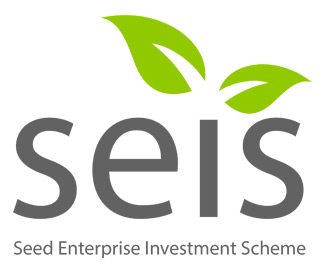If you are an entrepreneur or small business owner, you will probably need to raise capital to either get things off the ground, invest in new capital equipment, or maybe to finance an expansion.
You could go down the more traditional route of securing finance via a bank, but in these hard economic times this may not be an option.
This may mean looking for equity investment opportunities, and if your startup or small business qualifies, the Seed Enterprise Investment Scheme (SEIS) legislation may be the best option.
SEIS in brief
The purpose of SEIS is to help small and early stage companies get access to equity finance.
SEIS mitigates the risks for investors they usually face when funding startups. Under the legislation, investors can invest up to GBP 1000,000 in the first year of the investment, and increase this up to a total for GBP 150,000 over a three-year span.
To mitigate the risks associated with early stage companies, the Government supplies investors with significant tax reliefs, including providing up front income tax relief of up to 50% of the investment, exemption from capital gains tax, and mitigation against income tax in case the company fails.
These features makes investing in small businesses a lot more attractive, meaning sourcing capital for your new business is potentially a less troublesome task.
It also allows your business to benefit from the knowledge an experienced investor can bring into an enterprise.
Does my business qualify?
Before you begin with SEIS legislation, you should ensure your business is suitable. To qualify, your business must:
- Have permanent UK establishment
- Be unquoted on the stock exchange
- Have fewer than 25 full time staff
- Be less than two years old
- Be independent of another company, and not in a partnership with another company.
If none of these factors apply, you must then ensure your business trade is a qualifying one. Most trades are suitable, yet there are a few “excluded activities.”
If your trade either wholly qualifies under the following – or constitutes over 20% of the business activities – it will not qualify for SEIS: providing legal, financial or accountancy services, dealing in land; leasing assets on hire (except within shipbuilding); business activities surrounding woodlands; handling hotels/care homes; dealing in goods (other than ordinary trade); property development, farming or market gardening; shipbuilding; steel and coal production; small instances of generating feed-in tariff electricity.
Qualifying Business Activity
The third aspect of the legislation you should consider is that within SEIS, any capital that is raised must be spent within three years from the date the shares were issued.
Carrying on or preparing to carry out a new qualifying trade, and carrying on research and development which will lead to or benefit a new qualifying trade are all qualifying business activities.
Advance Assurance
Even if you believe your business fits with the conditions above, you may want to apply for advanced assurance from HMRC.
You will need to give HMRC details on business activities, shareholders agreement, articles of association, business plan, and accounts.
You are not obliged to seek this assurance, but many do for either piece of mind, or knowledge of any aspects that need to be changed to ensure their business would qualify – and provided the information you supply is correct, HMRC will normally be bound by such an assurance.
Formal Approval Process
The next stage is the formal approval process.
Firstly, you must complete a SEIS1 form and send it to HMRC’s Small Company Enterprise Centre (“SCEC”). The form is a declaration that the company meets the requirements of SEIS.
You cannot submit the SEIS1 until the business has either been trading for four months, or spent at least 70% of the capital raised by share issue.
If the SCEC accepts the declaration, it will supply the SEIS3 forms necessary for your investors to claim tax reliefs.
As with most aspects of finance and investment, if you have not completed the SEIS investment legislation before, or indeed if new circumstances apply, it pays to take financial advice.
An independent financial advisor can help outline the legislation is comprehensive detail, state how it applies to your business, suggest ways to source the capital, and ensure that your business stays within the parameters of the legislation and your investor(s) can consequently claim the tax reliefs.
